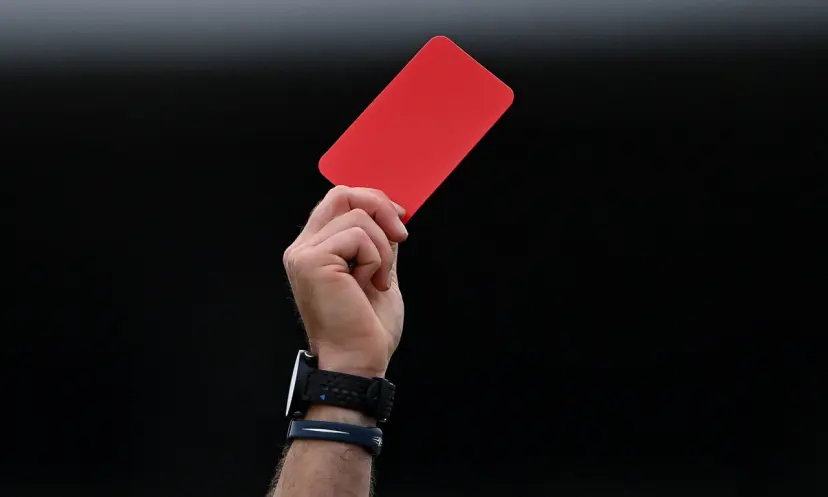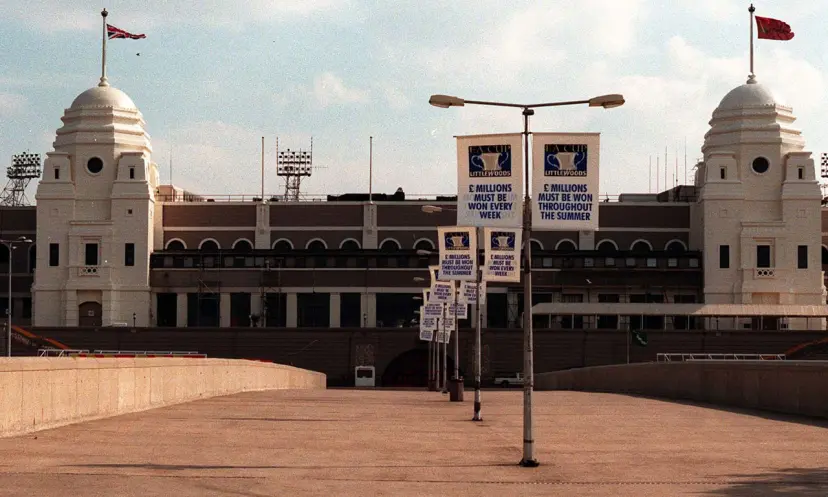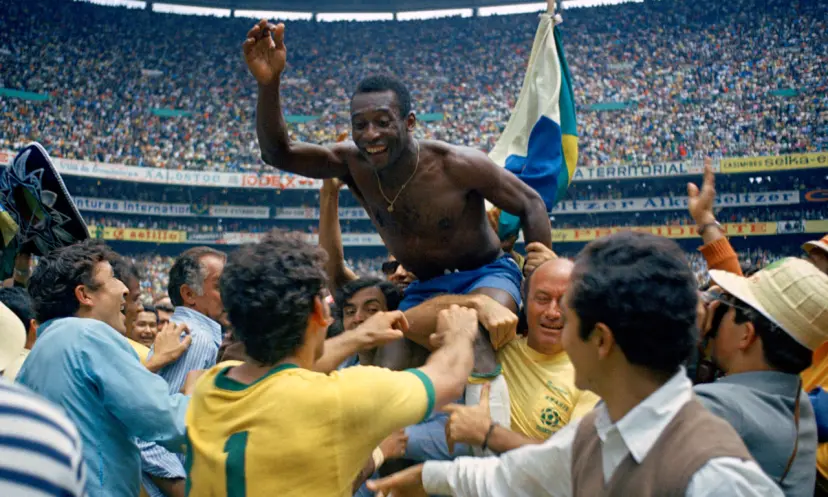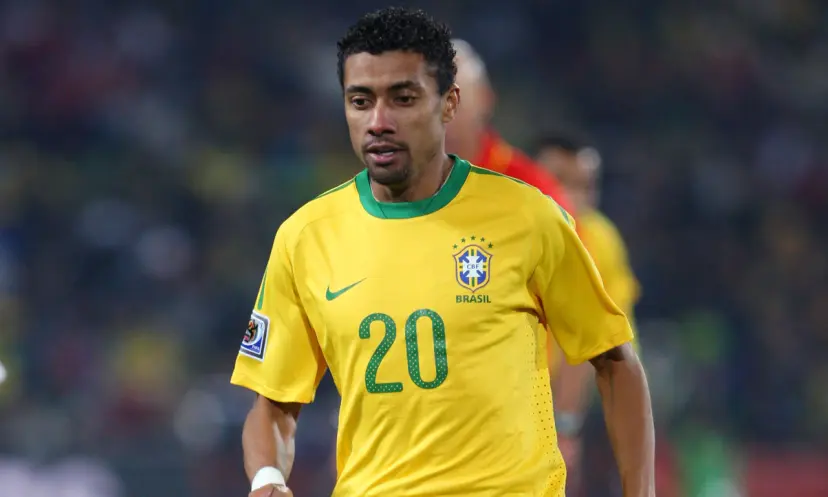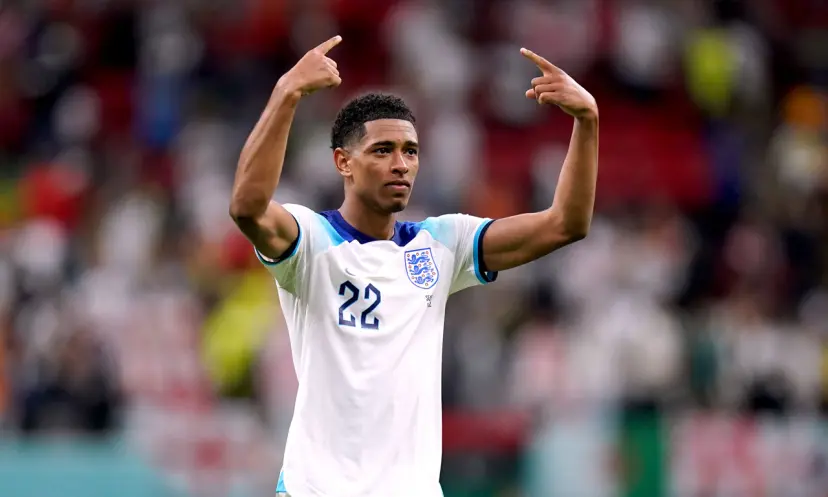World Cup final: The key factors needed to lift the trophy
Published:
World Cup final facts and figures: Factors for success
With the knockout stages now well under way, it won’t be long before the 2022 World Cup final is upon us.
In preparation for the biggest event in the international football calendar, we’ve analysed every final since 1986 – the first with a similar format to the current competition – to try to predict how this year’s showpiece will play out.
Are rankings relevant?
FIFA introduced their official world rankings ahead of the 1994 tournament and – while undoubtedly imperfect – they have been a reasonably good predictor in their showpiece event. Five of the seven finals since then have been won by the team with the superior ranking prior to the competition kicking off, including each of the most recent three.
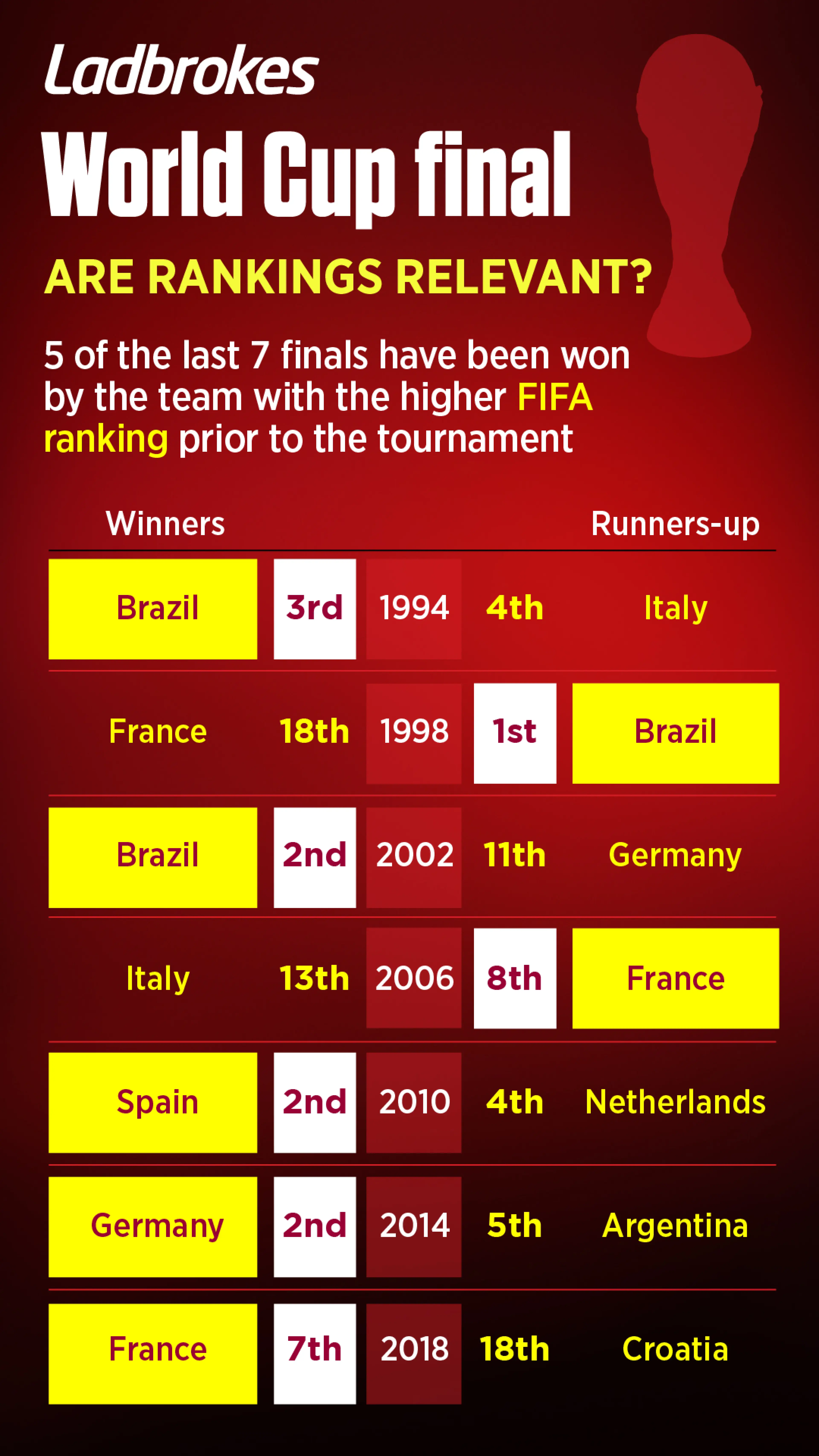
Furthermore, the same proportion of recent finals – five out of seven – have been won by a team ranked in the top eight prior to the tournament, with four of those winners ranked third or better. This is bad news for the Netherlands (8th), Croatia (12th) and Morocco (22nd) among this year’s quarter-finalists, and a boost for Brazil (1st), Argentina (3rd) and France (4th).
It looks like the official rankings are still performing well as a predictor, with seven of the eight round-of-16 matches this year being won by the higher-ranked team. The exception was Morocco’s shock penalty shoot-out win over a misfiring Spain.
Fatigue is a factor
The round of 16 has already delivered plenty of drama with two games having been settled by penalties, but the additional physical (and emotional) burden of extra time often counts against teams who go on to reach the final. In seven of the last nine World Cups there was one finalist who had more matches go to extra time than their opponents and five of them ended up losing.
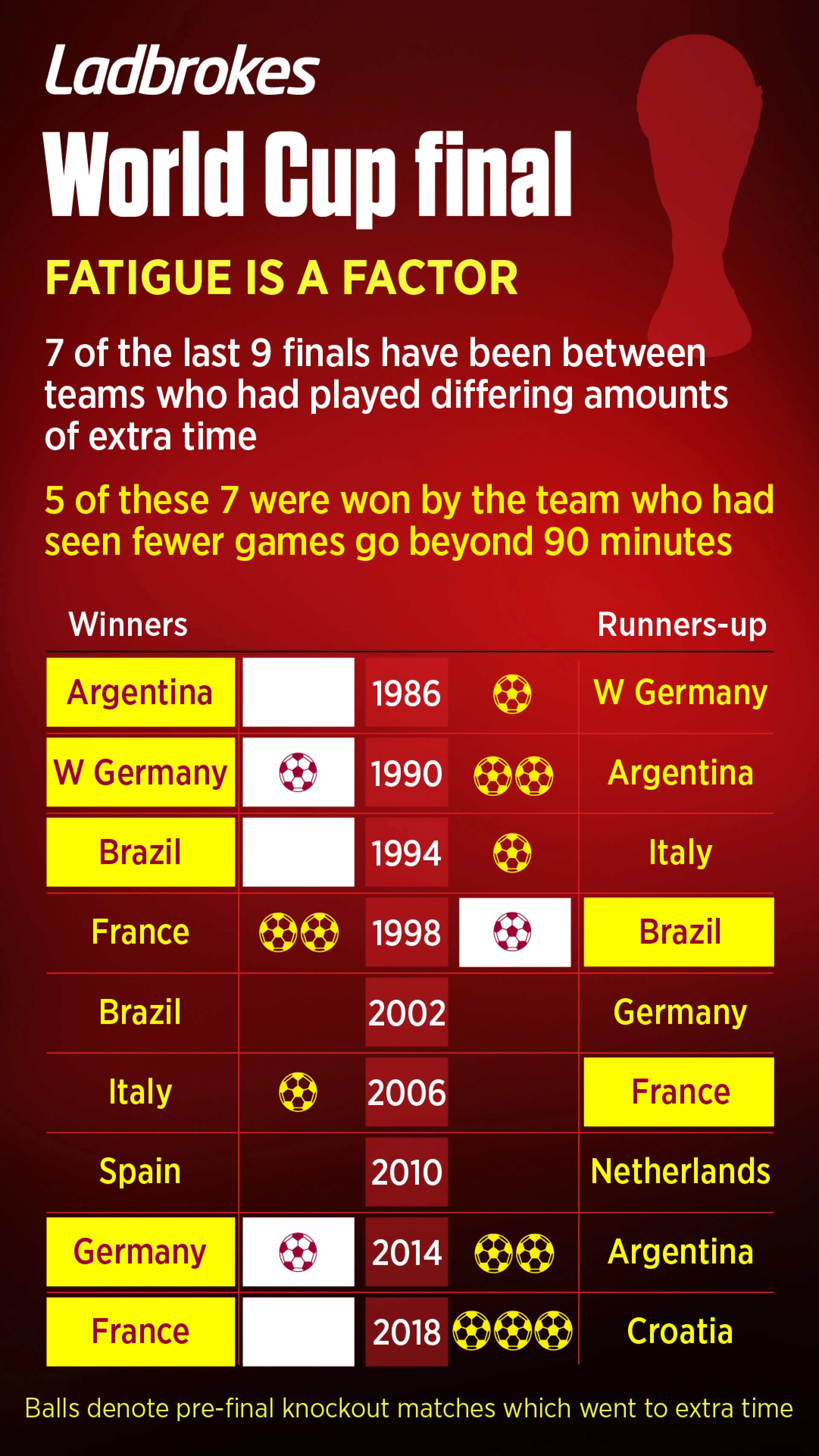
This includes Croatia at the last tournament, who saw all three of their pre-final knockout games go to extra time – including two penalty shoot-outs – and Argentina in 2014 who needed 120 minutes in two of their three. With the Croatians having already navigated one shoot-out so far, the chances of them going one better than in 2018 have already taken a knock.
Youth beats experience
With the modern football calendar increasingly crammed full of games, teams with younger legs to call upon have enjoyed a clear advantage. All of the last six World Cup finals were won by the younger starting XI, with the 2018 final seeing an average age gap of over three years between champions France (26.2 years) and runners-up Croatia (29.5 years).
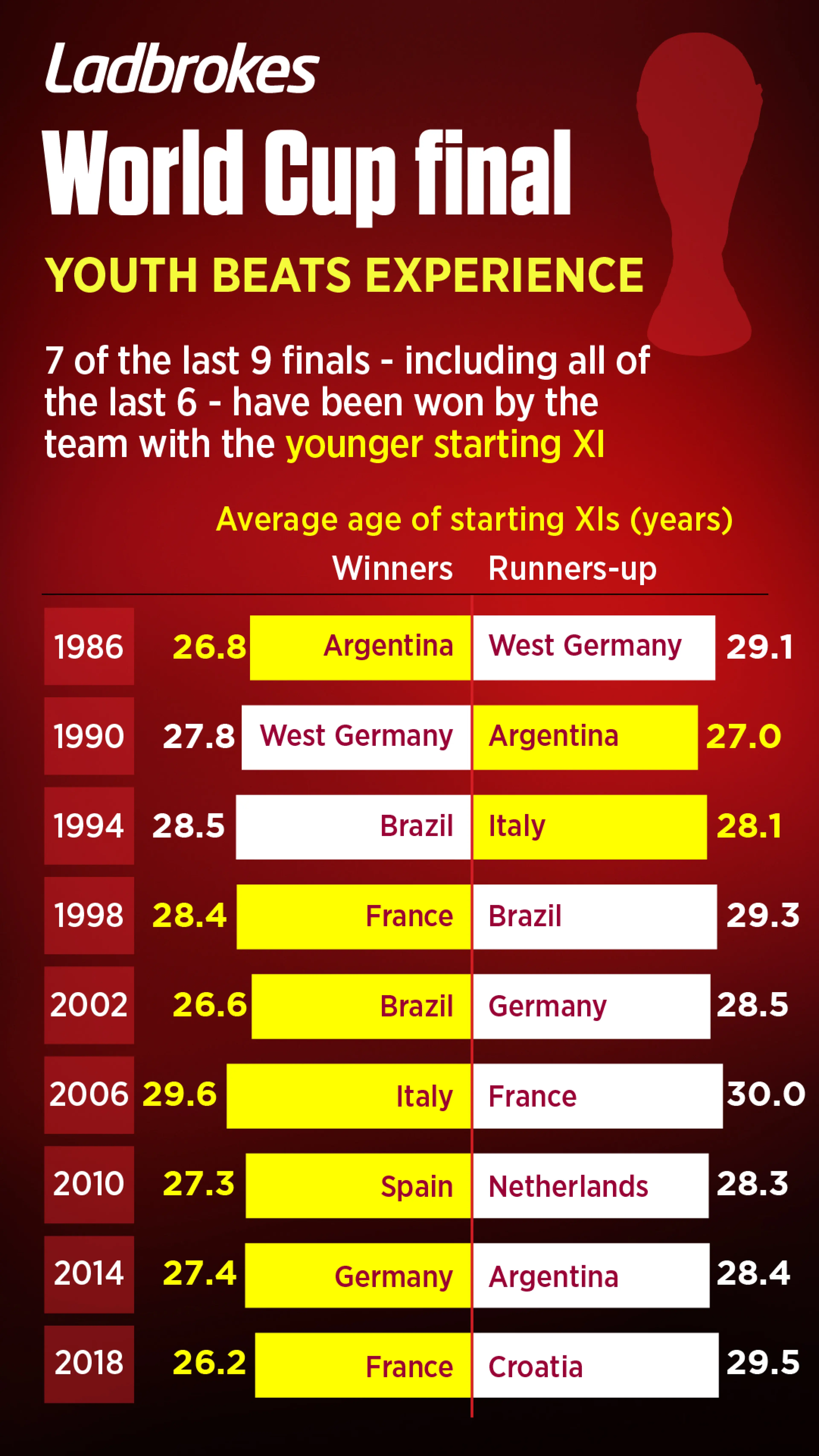
The quarter-finalists with the youngest starting line-ups across their first four matches have been England with an average age of 26.8 years, which bodes well for Gareth Southgate’s team. The oldest side in the last eight is Croatia at 29.5 years, closely followed by Argentina (29.1 years), so perhaps Lionel Messi has left it too late for a realistic shot at the one major trophy that has eluded him.
Success is a habit
Over the last five World Cups, the winning finalists had all performed better than the runners-up at recent big tournaments. Beginning with Brazil’s win over Germany in 2002, the final has always been won by the team who fared better at the previous World Cup and in all but one case the winner had also been more successful in their most recent continental championship.
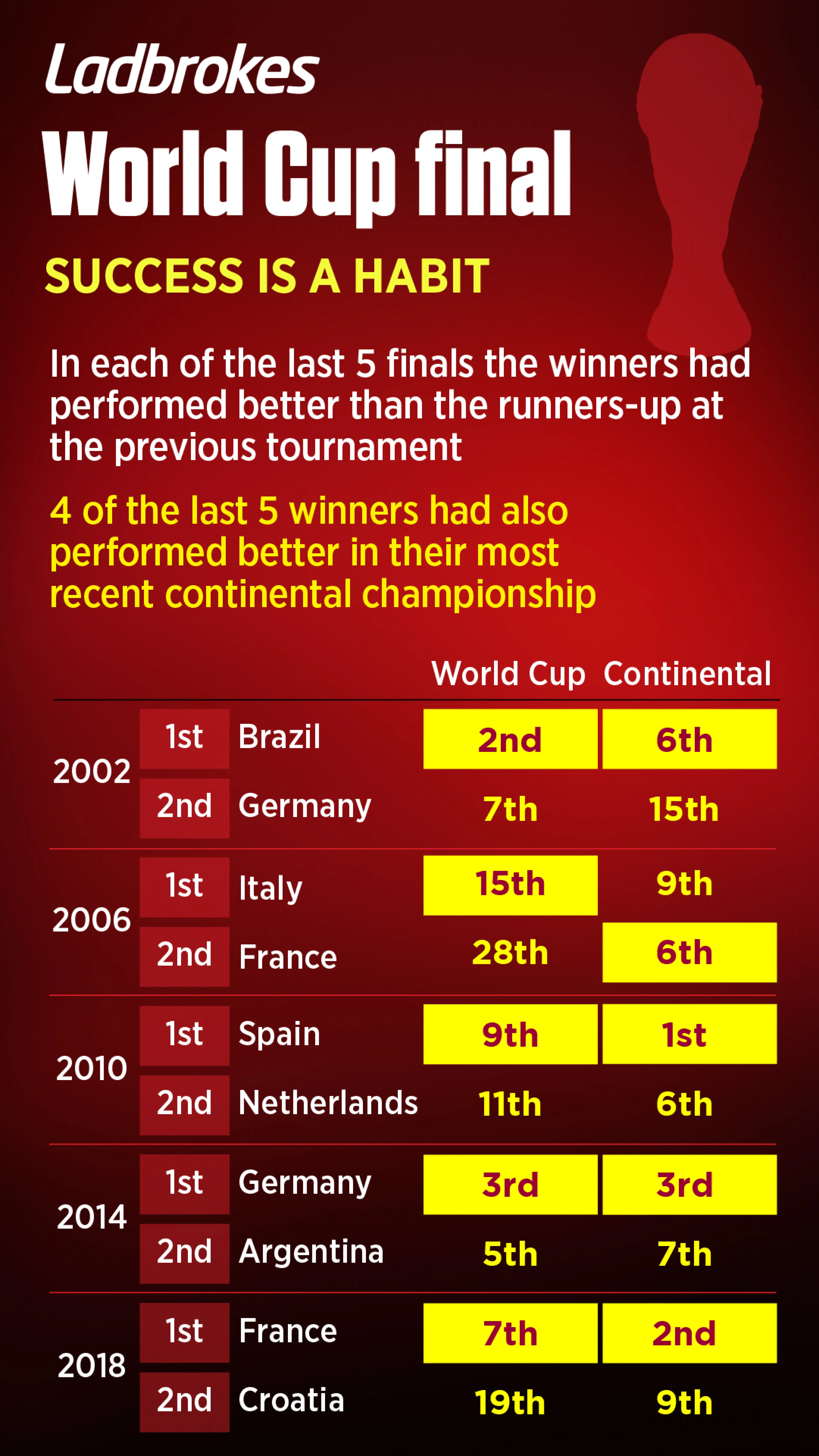
This is a good omen for 2018 World Cup semi-finalists France, Croatia and England along with 2021 Copa America champions Argentina. However the Netherlands – who failed to qualify for the last World Cup and were eliminated in the round of 16 at Euro 2020 – may lack the recent big game experience necessary to prevail.
Momentum matters
Even the three knockout games before the final itself can tell you a lot about who is likely to win. Eight of the last nine tournaments have seen one of the finalists kick off with a better combined goal difference across the knockout phase and all but one of those teams went on to triumph.
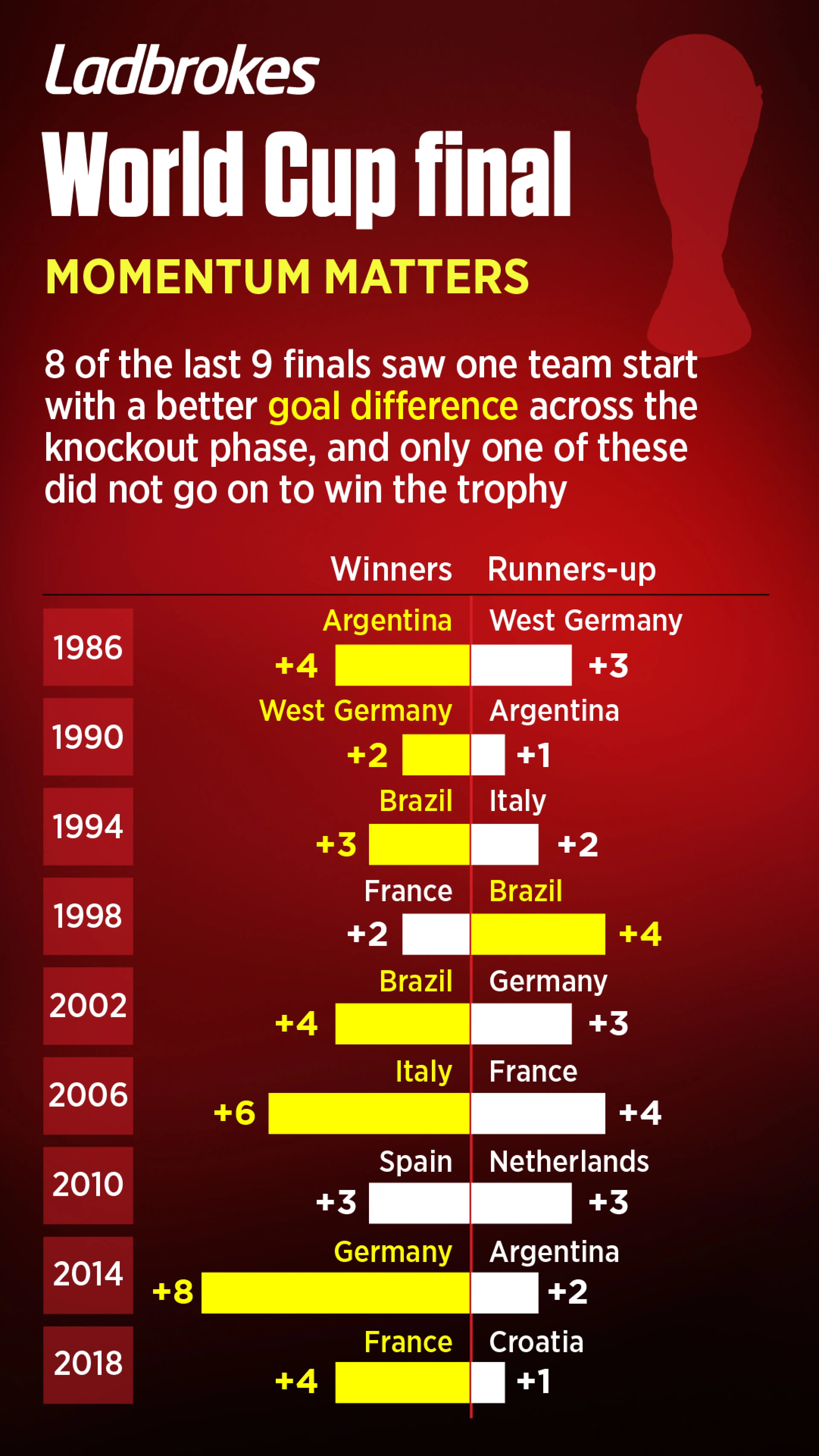
The outlier was France in 1998, who scraped their way to the final with the help of a golden goal and a penalty shoot-out. In addition to home advantage, the French were surely aided by the hospitalisation of Brazilian star striker Ronaldo on the eve of the match.
Therefore barring an unusual turn of events, the team who has beaten the most convincing path to the final should be favoured as the 2022 tournament draws to a close.

